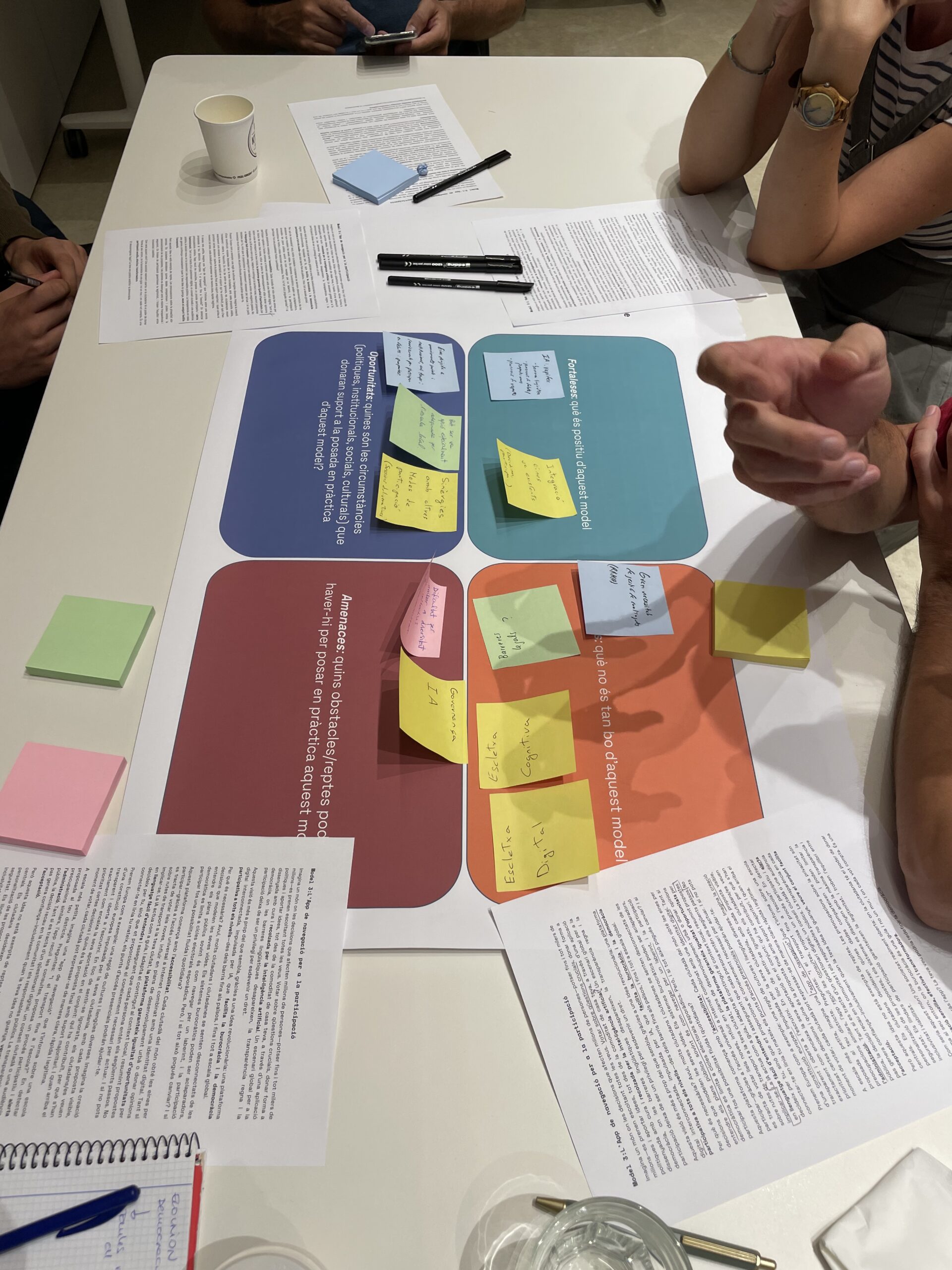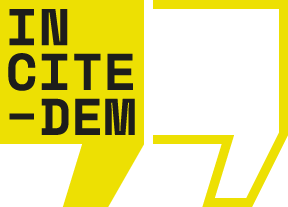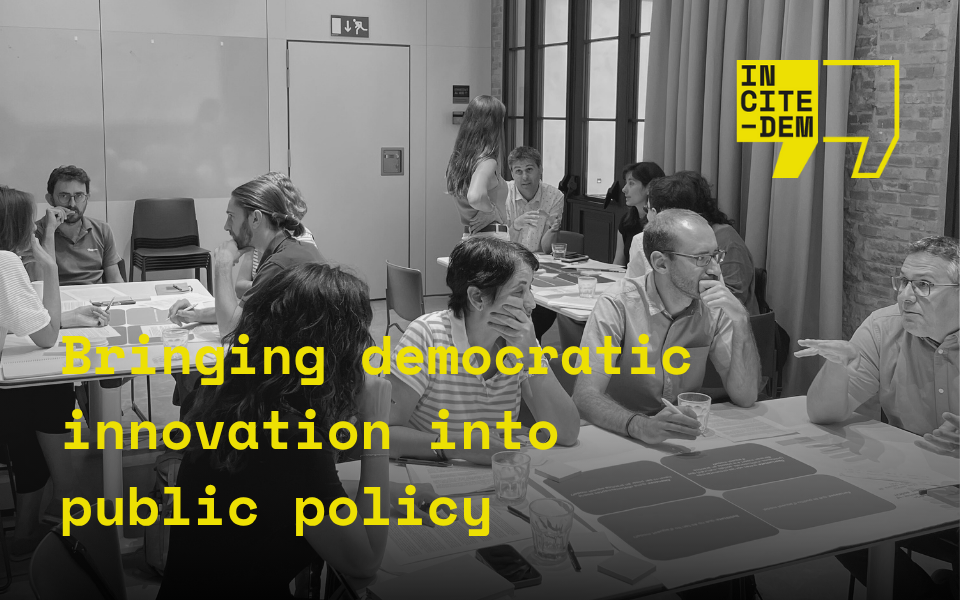On July 9th, the Barcelona Interactive Forum brought together 14 policymakers and public administration professionals to evaluate the feasibility and implementation potential of six democratic innovations co-designed by citizens across Europe.
The event focused on evaluating the practical implementation of six participatory and deliberative models that emerged from the 2024 Democracy Labs, where citizens across Europe co-designed visions for more inclusive and responsive democratic engagement.
This was one of nine national Interactive Forums held in 2025, where key institutional actors assess these citizen-generated models and provide insights to guide future policy recommendations.
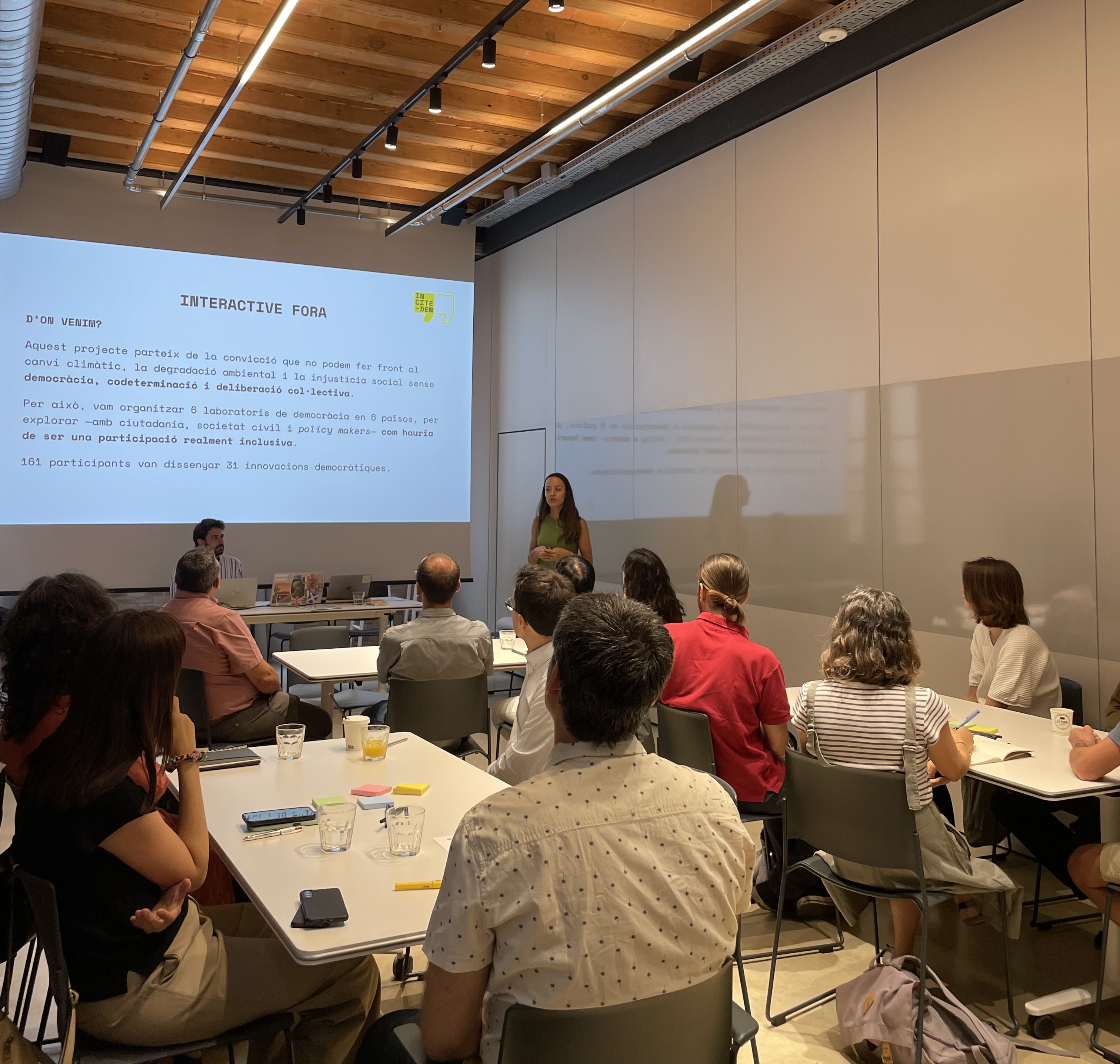
Workshop flow: from ideas to feasibility
The session opened with a short introduction of the INCITE-DEM project and the broader process that led to the forum. Participants were informed that the 31 innovations developed in the Democracy Labs were synthesized into six representative models for review, with the goal of evaluating their feasibility, potential barriers, and likely impact on society.
Each table was randomly assigned one model for two in-depth evaluation rounds. The session was structured to facilitate hands-on, practical reflection through a series of group exercises:
• Exercise 1: Viability assessment (SWOT) – Participants discussed whether the model could realistically be implemented in their institutional or political context, identifying strengths, weaknesses, opportunities, and threats.
• Exercise 2: Improving the model – Based on the initial SWOT, groups proposed concrete adaptations to increase the model’s viability and responsiveness.
• Exercise 3: Anticipated impact – Groups reflected on how the model might influence citizens’ attitudes toward democracy, as well as its effects on inclusion and sustainability.
At the end of each round, groups presented their key findings to the plenary—a lively and insightful exchange that revealed both enthusiasm and critical reflection.
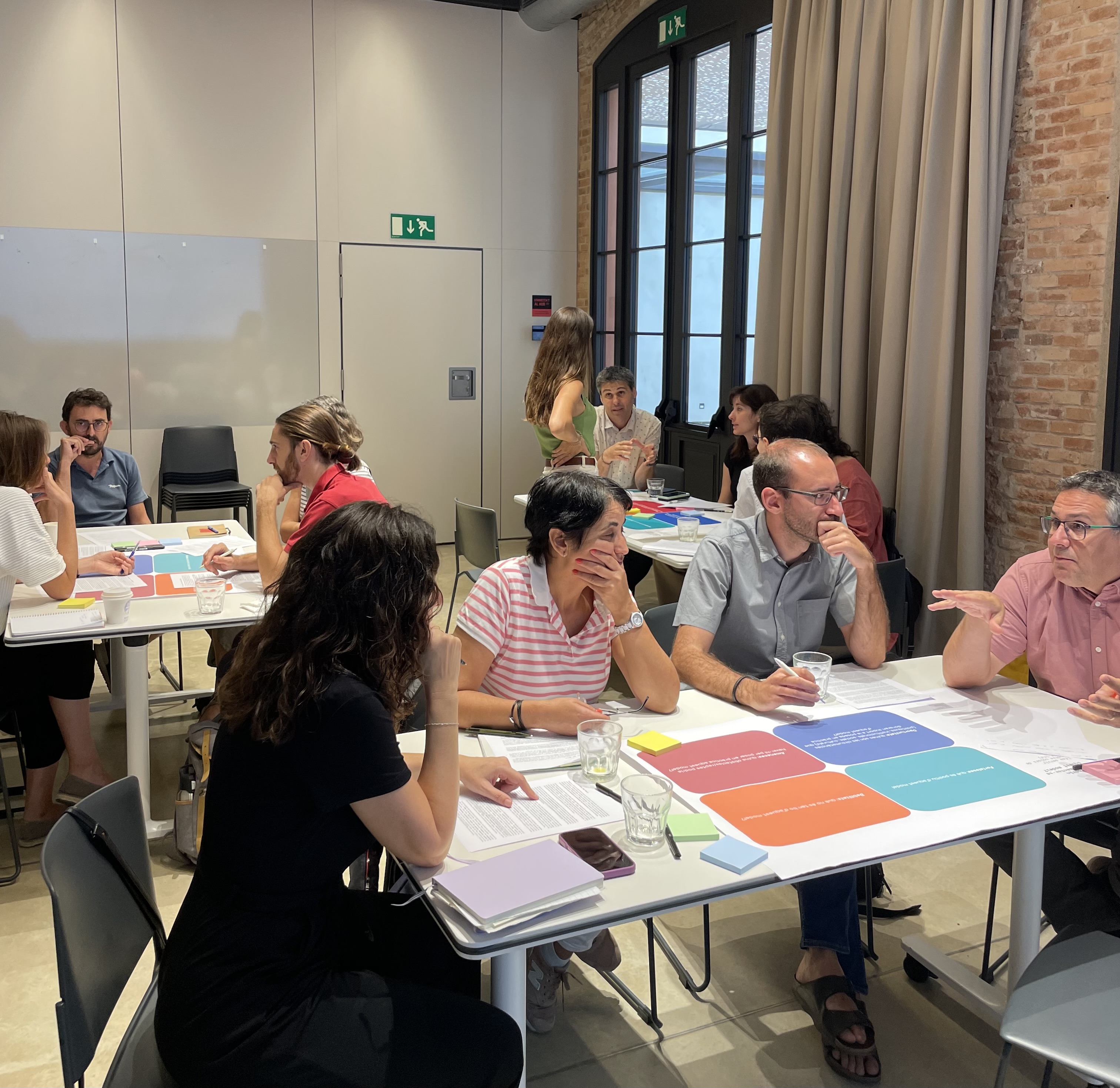
aKey takeaways from group discussions
Participants engaged in detailed evaluations of each model, identifying both model-specific challenges and broader patterns related to implementation, inclusiveness, and impact. Common themes that emerged across the discussions included:articipants expressed enthusiasm about the experience, highlighting its collaborative and forward-thinking nature:
Political and institutional alignment:
❖ Political will and institutional support were seen as essential for implementation; without this, even strong proposals risk stagnation.
❖ Legal and administrative constraints, as well as existing power dynamics, may limit uptake or create resistance
Clarity and feasibility of design:
❖ Some models required clearer definitions of governance structures, target groups, and core functions.
❖ Simple proposals were preferred because complicated ones are hard to manage and can make people feel disconnected.
Equity and inclusion:
❖ Inclusiveness needs to be actively deigned – not assumed – including attention to gender, digital and cognitive divides, and territorial disparities.
❖ Concerns were raised about dominant groups monopolising participation spaces or resources.
Tools, incentives, and feedback:
❖ Digital tools offer real potential—especially for younger audiences—but raise concerns around data governance and over-reliance on AI. Participants also highlighted that older adults and less digitally confident users might face barriers to effective engagement.
❖ Participation should be motivated to participate by a mix of incentives (e.g. recognition, time off, visible impact), not just financial compensation.
❖ Timely and transparent feedback loops are essential to build and maintain trust.
In general, participants brought institutional realism to the table—highlighting legal, political, and
administrative constraints while also identifying windows of opportunity and creative adaptations to
support implementation.
